Skin health daily habits (ages 8-10)
Good Skin Knowledge lesson plan
Time: 30 min
Objective
Students will be able to:
Learn the importance of showering and face washing
Learn how often to shower and wash your face
Materials
Pencils
Markers, crayons or colored pencils
Assessment
During Introduction to New Material, assess how students answer questions and if they are able to correctly answer the review questions.
During the Independent Practice, walk around and evaluate students’ work.
Opening
3 minutes
Scratch head and say, “I haven’t showered in TWO WEEKS! Fourteen days! I even played soccer every day and didn’t shower! What do you think?” If students are unresponsive, ask more pointed questions such as, “Do you think I smell good? Should I have showered?”
Explain “Because I haven’t showered in two weeks, my head itches, my hair is oily, my skin is oily, and I stink! I just don’t know how many times I’m supposed to wash my face or bathe.”
Tell the truth, “Actually I showered (this morning/last night/today). So don’t worry!”
Explain that today they will be focusing on daily habits, more specifically showering and face washing.
Introduction to new material
10-15 minutes
Ask how many times students think they should shower by a raise of hands.
Raise your hands if you think you should shower every day.
Raise your hands if you think you should shower every other day.
Raise your hands if you think you should shower twice a week.
Say they are all correct. Explain:
Depending on what your parents think and other factors, such as if you have dry or oily skin, or if you play sports or exercise, the number of times you shower will vary.
When you become a teenager, you will probably shower almost every day.
Explain what happens when you don’t wash up: Sweat, oil, and dead skin cells can mix with germs and get into your body through cuts and scrapes. That can make you sick.
You should always bathe after you are sweating or have been in a pool.
Explain shower technique:
When you shower should you use really hot water? (No.) Really cold water? (No.) Explain that you should use lukewarm water because it is less drying to the skin.
When standing in the shower, it’s important not to get shampoo in your eyes—it can sting and hurt your eyes. So make sure you stand with you back towards the water, tilt your head back, and let the water run down your back away from your face. Like this. (Demonstrate positioning).
Explain it’s also important to wash your face, especially as you get older. This is important because a lot of oil and dirt can clog up your skin. This can cause pimples and other skin problems. You can use a gentle cleanser or face wash. You should wash your face in the morning and at night with warm water.
Ask the students: “What have you touched today?”
If students are unresponsive, s/he can ask pointed questions such as, “Raise your hand if you petted your dog? Who ate a bologna sandwich? Who played outside? Who used the restroom?”
Then say, “Because we do all these things, it is important that we wash our hands—especially before and after eating as well as after using the restroom.”
When you wash your hands, you should use soap and water and rub for 20 seconds. If counting to 20 is boring, you can sing “Happy Birthday” at a steady pace and add “any many moooore” to the end, and that is about 20 seconds long!
Ask, “So far, what have we learned?”
When should we shower?
What happens when we don’t shower?
How do we wash our faces? How many times?
How long should we wash our hands for? What song can we sing to time ourselves?
And remember, after you finish washing up, you should put on lotion, unless you have sensitive or oily skin—but they make lotions for all types of skin. It is important to put on a board-spectrum sunscreen with an SPF of 30 or higher every day if you are going to be outside.
Independent practice
10 minutes
Materials: My Habits worksheet, pencils, coloring utensils
Now we are going to make a schedule of your daily habits.
Hand out My Habits worksheet.
Explain:
Each day of the week is split into morning, afternoon, and night. When do you shower? Go ahead and write it down.
If you exercise during the week because you play soccer, dance, or play outside with friends, make sure to write that down too. You will know then that after that activity, you will need to shower to cleanse your skin!
You can also write down when you should wash your face. Do you remember when we should wash our faces? Usually in the morning and at night!
You can also put, if you want, brushing your teeth and other things you do to keep yourself clean and healthy.
You can use crayons (or markers or colored pencils) to color and decorate your calendar.
Help students by saying during the activity, “Remember to add your exercise activities.” “When do you normally shower? Go ahead and write that in! You can even put it in a special color.”
Walk around during activity to see how students are doing, and confirm they understand the activity.
Closing
Provide positive reinforcement like, “Looks like you all will be washing experts with the use of your beautiful calendars!”
Note that the lesson is ending, but they can keep working on their calendars at home. When they finish, they can post it on their fridge or next to their bed to help remind them how to keep their skin clean and healthy.
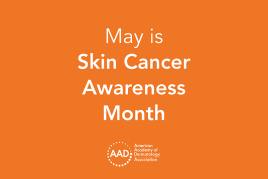 Think sun protection during Skin Cancer Awareness Month
Think sun protection during Skin Cancer Awareness Month
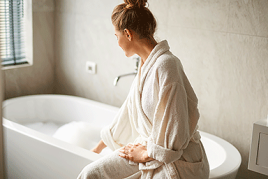 How to care for your skin if you have lupus
How to care for your skin if you have lupus
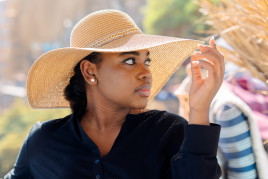 Practice Safe Sun
Practice Safe Sun
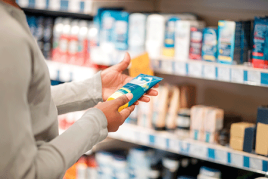 Sunscreen FAQs
Sunscreen FAQs
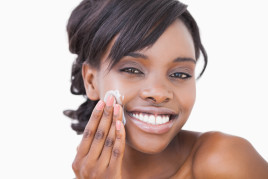 Fade dark spots
Fade dark spots
 Hidradenitis suppurativa
Hidradenitis suppurativa
 Laser hair removal
Laser hair removal
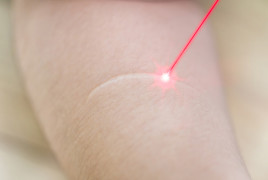 Scar treatment
Scar treatment
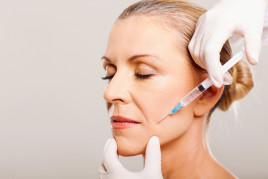 Botox
Botox
 Kids' camp - Camp Discovery
Kids' camp - Camp Discovery
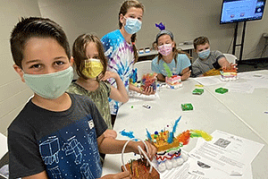 Dermatologist-approved lesson plans, activities you can use
Dermatologist-approved lesson plans, activities you can use
 Find a Dermatologist
Find a Dermatologist
 Why choose a board-certified dermatologist?
Why choose a board-certified dermatologist?